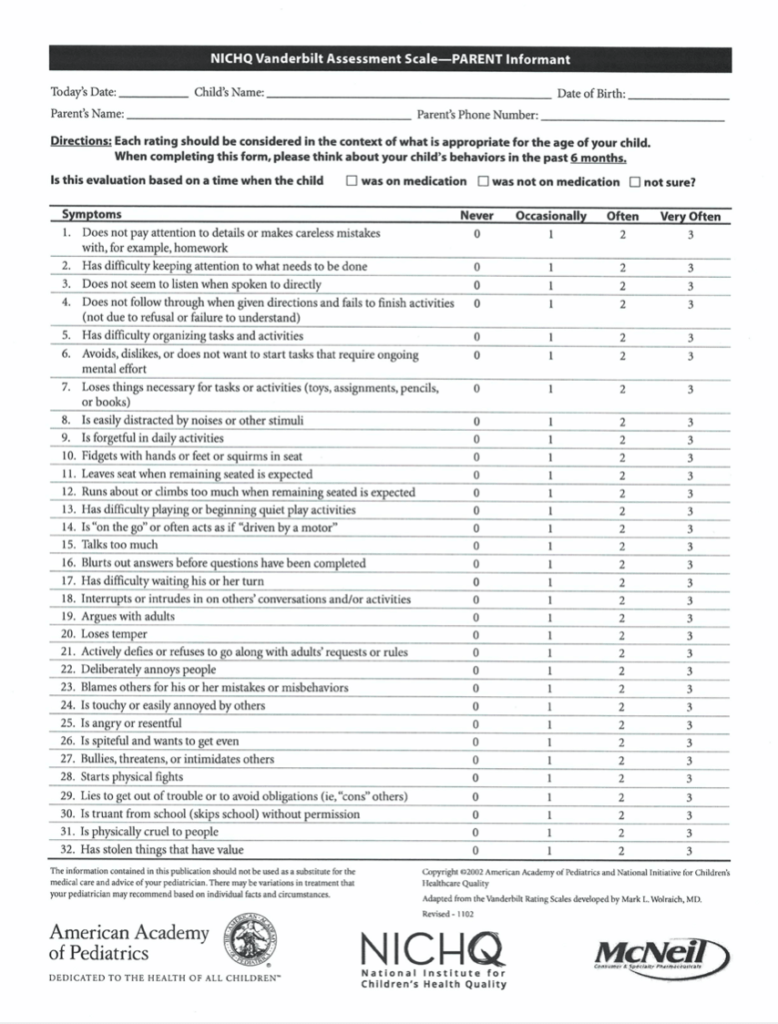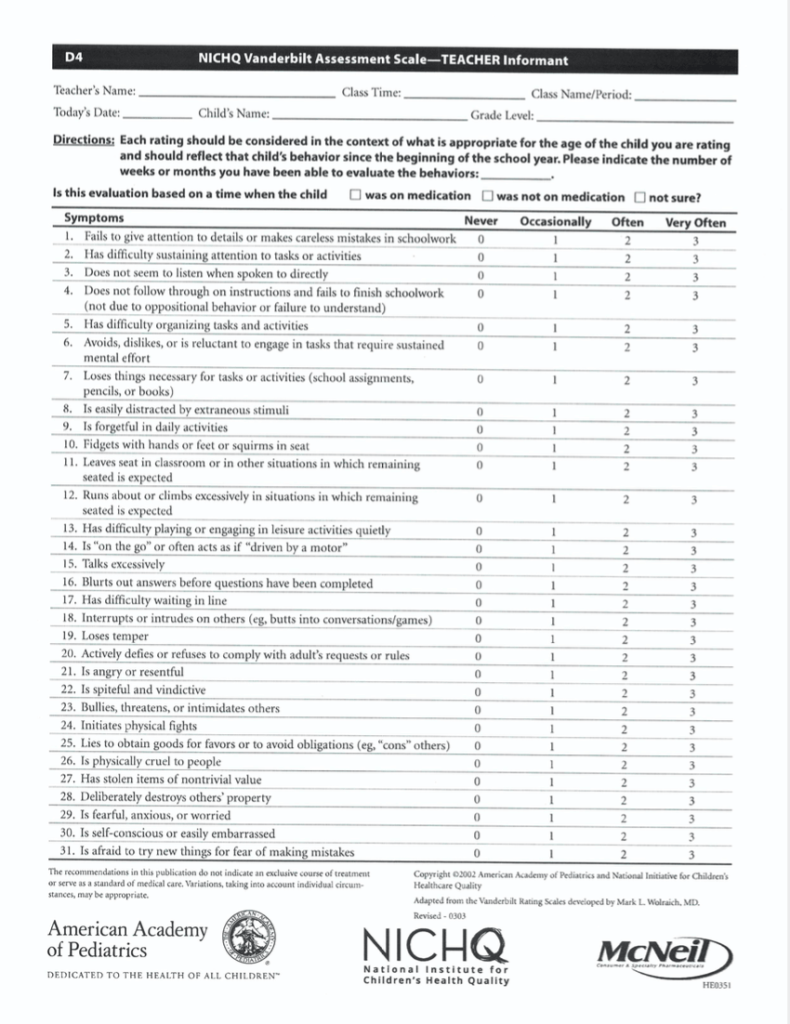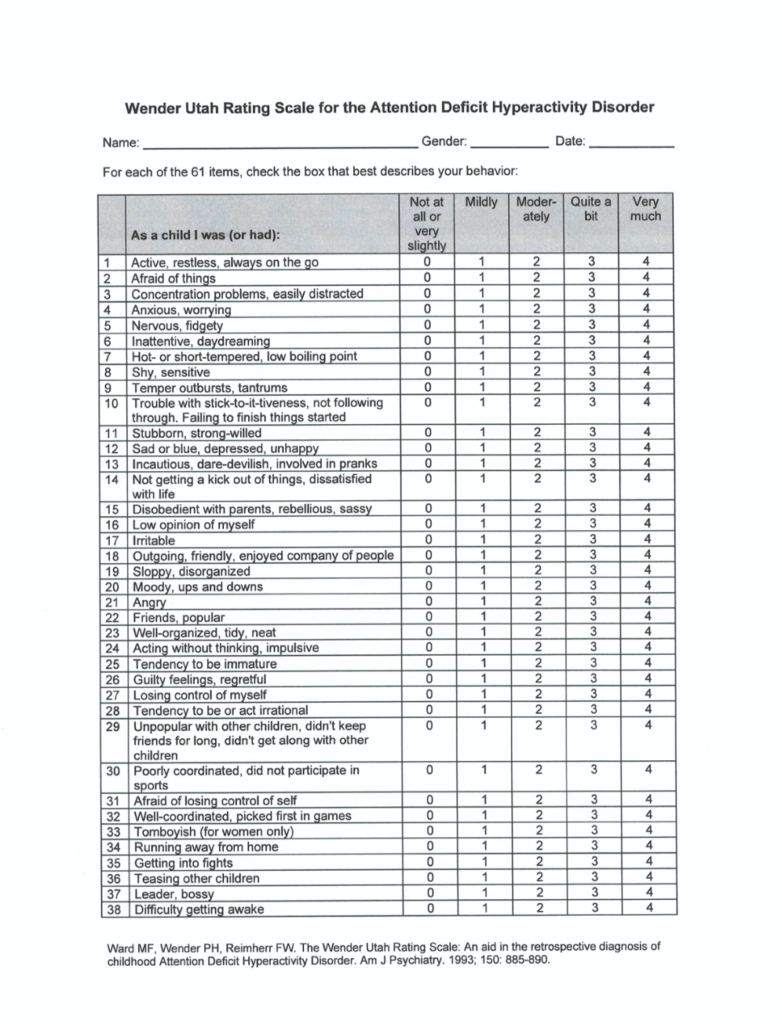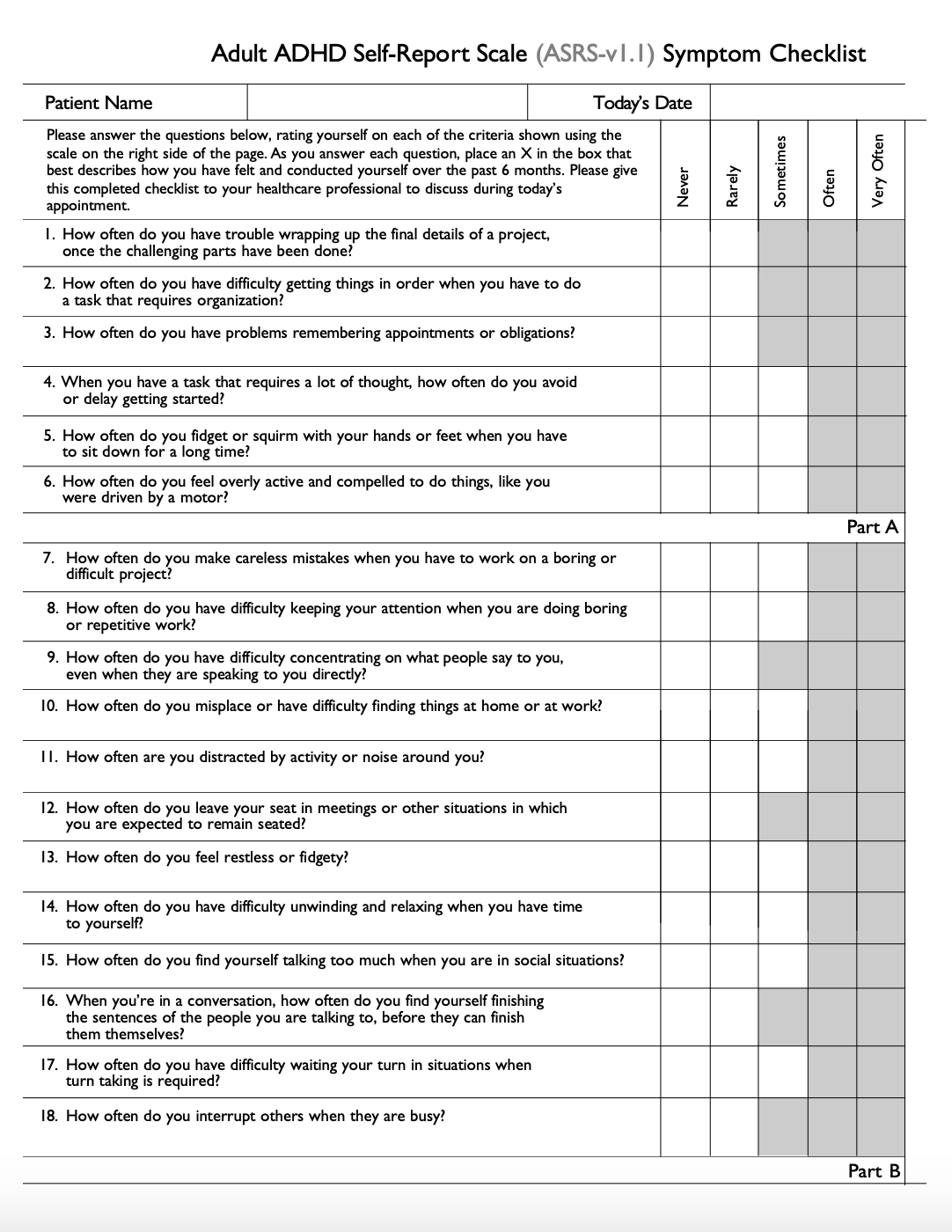ADHD Testing and Evaluation
ADHD is characterized by a persistent pattern of inattention and/or hyperactivity-impulsivity that significantly interferes with development and successful day-to-day functioning goals for children or adults.
(For insurance, check coverage for Shawna M. Benson, PsyD, LP, Supervisor at Soul Work Counseling)
Attention Deficit Hyperactivity Disorder (ADHD)
- Combined presentation
- Predominantly inattentive presentation (what is sometimes called ‘ADD’)
- Predominantly hyperactive-impulsive presentation
It is easy to start the ADHD testing and assessment process by filling out the appropriate rating forms below and schedule an initial Intake Session with one of our assessment providers. Your first appointment will be a thorough review of your completed Intake Forms and your provider will want to gather other relevant history (1 hour). Prior to determining if additional testing is warranted, other mental health or behavioral issues need to be discussed and ruled-out. Many difficulties, other than ADHD, can also significantly disrupt attention and behavior, such as a trauma history, potential medical problems (to be discussed with your medical doctor), other mental health or mood disorder difficulties, or significant interpersonal struggles or life changes.
Children and Adolescents
We can assess children and adolescents from age 8 to 17 for ADHD here at Soul Work Counseling.

Children who do not outgrow the typical Hyperactive and Impulsive behaviors of early childhood are likely to start showing signs of struggling academically during elementary school. By age 8 or so, a parent or guardian will probably be getting feedback from teachers and other school personnel that your child’s learning is disrupted by your child “being driven by a motor,” or “climbing the walls.” Children with ADHD tend to frequently get out of their seat during school lessons, they are easily distracted, impulsive, not seemingly able to remember or follow directions, and show overall problems with attention and focus. These symptoms are also likely creating problems at home and in social situations. Many children are both hyperactive-impulsive and have a significant problem with attention.
Some children do not have a significant problem with hyperactivity or with impulsivity, but they struggle more so with the attention difficulties that get in the way of their academic and life success, that is called ADHD, Predominantly Inattentive Presentation (or people sometimes just refer to that as ADD). These children show problems with sustaining attention long enough to remember to follow directions completely or to finish homework assignments. Individuals exhibit problems with “remembering to remember,” general difficulties with Executive Functioning (like poor planning and problem-solving skills), they forget and loose things more often than does the average child, and they typically struggle with organizing themselves and organizing their environments. This inattentive type is sometimes diagnosed more often later in middle school or high school, or even adulthood, due to the individual’s strength in trying to cope with the inattentive symptoms on their own when young, until the academic or employment demands in their life become too difficult.
Below are 2 child ADHD rating scales (parent and teacher) that can help screen for ADHD and are a good place to start the assessment for your child (fillable rating scales work best if you use FREE Adobe Acrobat Reader or print out the forms and fill them out and send in to us).
Adults
We can assess adults age 18+ for ADHD here at Soul Work Counseling.
 Adults with ADHD will have exhibited symptoms of Attention Deficit and/or Hyperactivity/Impulsivity prior to age 12, even if they were never assessed or officially diagnosed with ADHD during childhood or adolescence.
Adults with ADHD will have exhibited symptoms of Attention Deficit and/or Hyperactivity/Impulsivity prior to age 12, even if they were never assessed or officially diagnosed with ADHD during childhood or adolescence.
As adults, individuals with ADHD often have a chronic history of struggling with inconsistent employment or work performance reviews that typically note a need for improvement in timeliness, follow-through, organization, and work accuracy. Similar to how children struggle, adults with ADHD show problems with sustaining attention long enough to remember all necessary tasks, follow directions completely, or to complete homework or work assignments successfully and on time. Individuals exhibit problems with “remembering to remember,” general difficulties with Executive Functioning (like poor planning and problem-solving skills), they forget and loose things more often than does the average person, as well as having problems with organizing themselves and organizing their environments. Hyperactive symptoms in adults, verses children, often present more like impulsiveness, restlessness, and interrupting upon other people. Partners and spouses of adults with ADHD typically find themselves taking over organizational tasks within the home, often find themselves correcting their ADHD partner, and frequently remind their ADHD partner about necessary tasks and appointments, and this dynamic can create stress within that primary relationship.
It can be challenging to rule out ADHD with some adults if there has been a recent history of chemical abuse or substance dependency struggles or if mood disorders or other mental health difficulties exist but are not well treated. These potential concerns will also be assessed during the initial Intake Session and follow-up testing, as needed.
Below are 2 Adult ADHD rating scales (one form to screen for previous childhood behaviors and one form to document more current adult behaviors), both forms together can help screen for ADHD in adults and are a good place to start your assessment (fillable rating scales work best if you use FREE Adobe Acrobat Reader or print out the forms and fill them out and send in to us).
CHADD is a national education, advocacy, and support group for children, adults, and families struggling with ADHD and a website where you can learn more about ADHD in children and adults.




